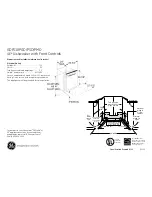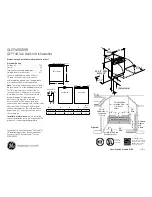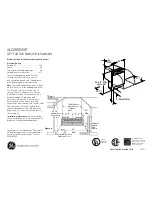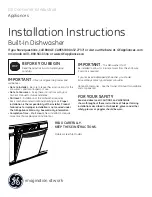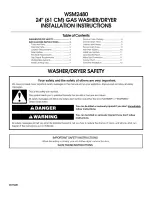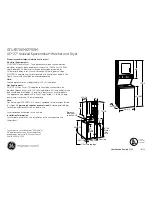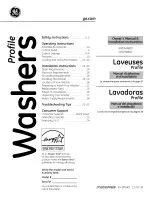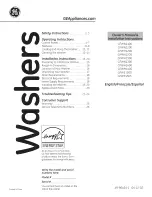
13
Maximum loads
Recommended loads are indicated in the
programme charts.
General rules:
Cotton, linen: drum full but not too tightly
packed;
Synthetics: drum no more than half full;
Delicate fabrics and woollens: drum no more
than one third full.
Washing a maximum load makes the most
efficient use of water and energy.
For heavily soiled laundry, reduce the load
size.
Laundry weights
The following weights are indicative:
Removing stains
Stubborn stains may not be removed by just
water and detergent. It is therefore advisable to
treat them prior to washing.
Blood: treat fresh stains with cold water. For
dried stains, soak overnight in water with a
1200 g
bathrobe
100 g
napkin
700 g
quilt cover
500 g
sheet
200 g
pillow case
250 g
tablecloth
200 g
towelling towel
100 g
tea cloth
200 g
night dress
100 g
ladies’ briefs
600 g
man’s work shirt
200 g
man’s shirt
500 g
man’s pyjamas
100 g
blouse
100 g
men’s underpants
special detergent then rub in the soap and
water.
Oil based paint: moisten with benzine stain
remover, lay the garment on a soft cloth and
dab the stain; treat several times.
Dried grease stains: moisten with turpentine,
lay the garment on a soft surface and dab the
stain with the fingertips and a cotton cloth.
Rust: oxalic acid dissolved in hot water or a
rust removing product used cold. Be careful
with rust stains which are not recent since the
cellulose structure will already have been
damaged and the fabric tends to hole.
Mould stains: treat with bleach, rinse well
(whites and fast coloureds only).
Grass: soap lightly and treat with bleach
(whites and fast coloureds only).
Ball point pen and glue: moisten with
acetone (*), lay the garment on a soft cloth and
dab the stain.
Lipstick: moisten with acetone as above, then
treat stains with methylated spirits. Remove
any residual marks from white fabrics with
bleach.
Red wine: soak in water and detergent, rinse
and treat with acetic or citric acid, then rinse.
Treat any residual marks with bleach.
Ink: depending on the type of ink, moisten the
fabric first with acetone (*), then with acetic
acid; treat any residual marks on white fabrics
with bleach and then rinse thoroughly.
Tar stains: first treat with stain remover,
methylated spirits or benzine, then rub with
detergent paste.
(*) do not use acetone on artificial silk.
Detergents and additives
Good washing results also depend on the
choice of detergent and use of the correct
quantities to avoid waste and protect the
environment. Although biodegradable,
detergents contain substances which, in large
quantities, can upset the delicate balance of
nature.
132969940.qxd 02/10/2007 16.07 Pagina 13





























